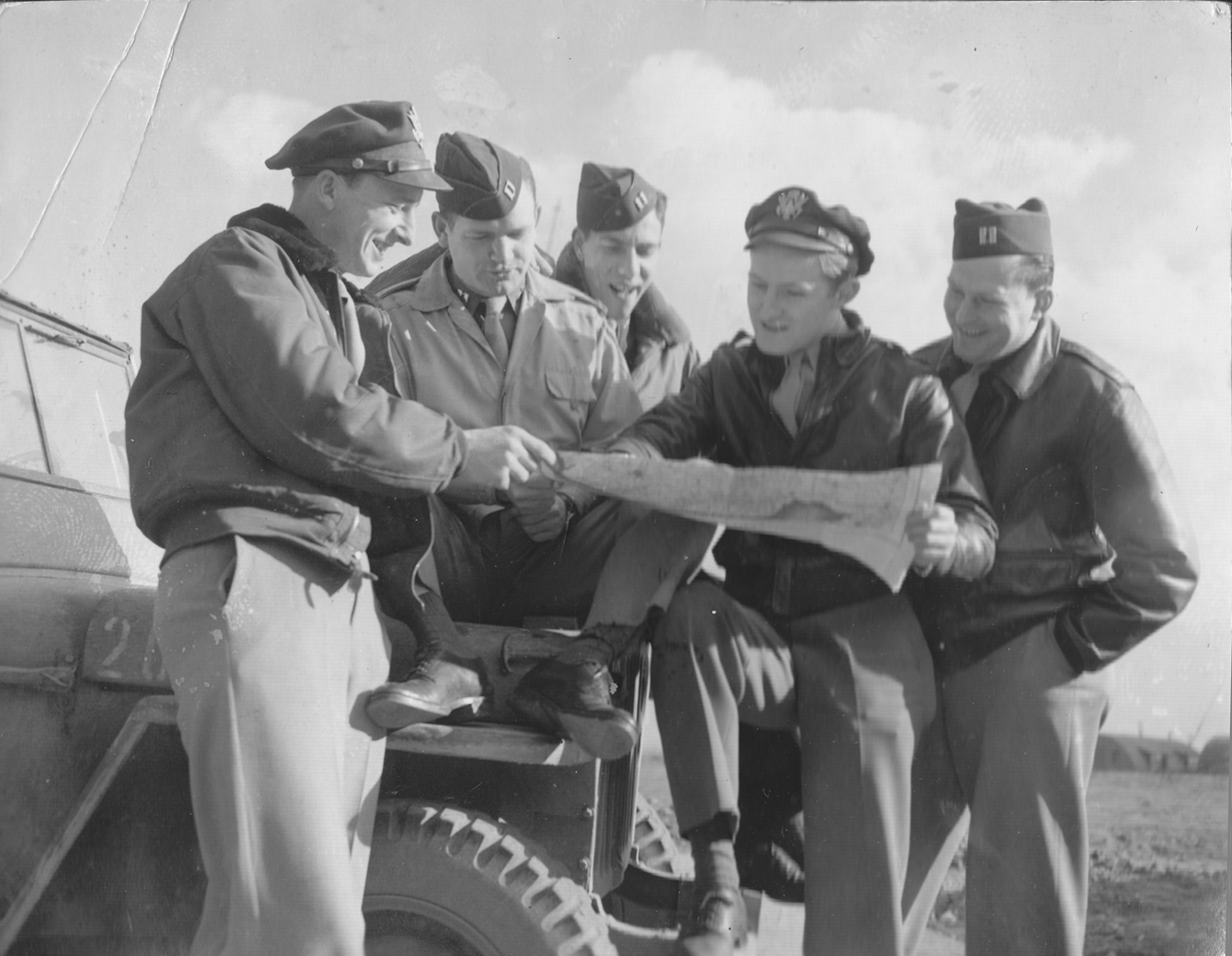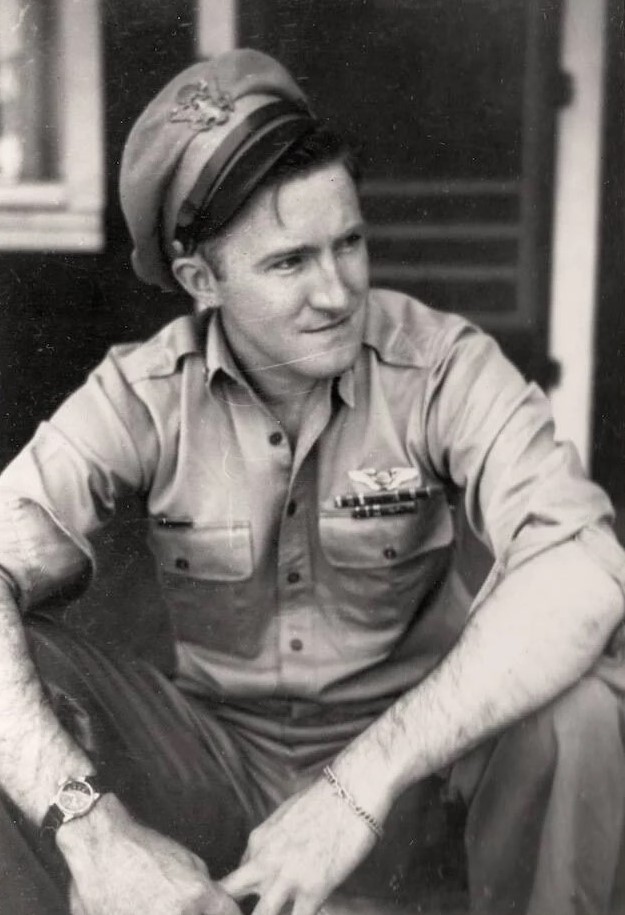By Brett Peruzzi
Managing Editor
NEWTON – Long-time Newton resident Harry H. Crosby was a noted Boston University professor of rhetoric who authored six textbooks, but it is his World War II service that he is now best known for.
In addition to his academic writing, Crosby was also the author of the memoir “On a Wing and a Prayer,” which recounts his wartime exploits as a navigator on a B-17 bomber. Crosby’s fame has surged this year with the release of the Apple TV+ series “Masters of the Air,” produced by Steven Spielberg and Tom Hanks, which draws upon Crosby’s memoir as source material.

Early life
Crosby was born in North Dakota in 1919 and grew up in Iowa. He had completed his bachelor’s degree at the University of Iowa and was working on his master’s degree there when Pearl Harbor was bombed by the Japanese in December 1941. Less than a week later, Crosby had suspended his graduate studies and enrolled in the United States Army Air Forces. He was trained in California as a Boeing B-17 Flying Fortress navigator, one of the principal bombers used by U.S. forces in the war.
He was then transferred to Boise, Idaho, and assigned to the 418th Squadron of the 100th Bomb Group. In May 1943, the 100th flew its B-17s to England to begin its combat duty.
World War II service
From the Royal Air Force Thorpe Abbotts airbase in East Anglia, Crosby began flying on bombing missions against the Germans in Europe that June. He served as lead navigator for a highly successful mission in Trondheim, Norway, for which he received the Distinguished Flying Cross.

On another mission over Germany, a last-minute decision by Crosby may have altered the course of history in post-World War II West Germany. The night before the mission, Crosby had been listening to a symphony by Beethoven. In the liner notes for the record album he read that Beethoven had been educated at the University of Bonn. The primary target was obscured by clouds, and Bonn was on a list of targets of opportunity. As they flew over the city, Crosby looked down and saw a cluster of buildings he believed was the university. He explained to the crew over the intercom that Beethoven had gone to school there and convinced the pilot to select another target from the list, saving the city from destruction. Because Bonn survived the war relatively unscathed, it was selected as the capital of West Germany.
Crosby was later promoted to lead navigator of the 100th Bomb Group and flew a total of 32 combat missions by the war’s end, well over the minimum of 25 required to be rotated out of combat duty. He left military service with the rank of lieutenant colonel. His unit earned the nickname “The Bloody 100th” due to its heavy losses—on one bombing raid on the German city of Munster, all but one of the 13 B-17s that went on the raid were shot down.
Crosby explained years later that he was heavily involved in the planning for D-Day in June 1944, but incredibly slept through the actual event.
“In the week before D-Day, I worked 24 hours a day superintending the preparation of maps, flight plans and formation for over a hundred different missions and variations,” he told Edward Jablonski, author of the 1965 book “Flying Fortress.”
“As a result, I worked for 75 hours straight. The night before D-Day I was a zombie and was ordered to go to my quarters and get some sleep,” he recalled. “Twenty-four hours later I awakened and it was all over! The BBC was announcing the landings and Axis Sally was corroborating. And I had missed it all!”

After the war
When the war ended, Crosby returned to the University of Iowa and finished his master’s degree, then earned a doctorate from Stanford University. In 1958, he moved with his wife Jean and four children to Newton, after being offered a job as a professor at Boston University. He remained at BU until his retirement in 1984.
During the 26 years he lived in Newton, Crosby and his wife were very active and well-known in the community. He served on the board of aldermen for three years, school PTAs with his wife Jean, and worked on various political campaigns, becoming an early supporter of future governor and presidential candidate Mike Dukakis.
In 1993, his war memoir “On a Wing and a Prayer” was published by Harper Collins. And then, this year, came the Apple TV+ series “Masters of the Air” that was partially inspired by his book. Crosby, who serves as the narrator of the series, is portrayed by Irish actor Anthony Boyle. Crosby’s memoir also influenced the book “Masters of the Air” by Donald L. Miller, which was the primary source for the TV series. The series has been positively received, with a current 86 percent approval rating on the movie and television review website Rotten Tomatoes.
Harry H. Crosby died in 2010 at age 91, and was buried in Newton.
RELATED CONTENT:
80th anniversary of D-Day invasion is a somber World War II reminder












